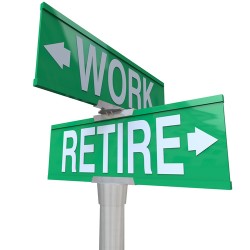More law firms appear to ease mandatory retirement policies

Image from Shutterstock.
The median age for all lawyers in the United States is increasing, as more law firms appear to be easing mandatory retirement policies.
The median age was 39 in 1980 and 46.5 last year, Law.com reports, citing statistics from the ABA Profile of the Legal Profession.
Law.com spoke with Jim Cotterman, a principal at Altman Weil, who said he thinks that more law firms are eliminating or at least loosening mandatory retirement policies. Some law firms are dropping the policies because departing lawyers who want to work beyond the retirement age are taking clients with them.
A senior BigLaw partner who spoke with Law.com outlined the problem for law firms.
“The reality is if the key partner retires, you don’t necessarily have that client anymore,” the senior partner said. “Clients are there for particular lawyers. If someone moves to a different firm or retires, often the client moves.”
Employees are protected from mandatory retirement under the Age Discrimination in Employment Act. But law firm equity partners are likely to be unprotected because they don’t qualify as employees, Bloomberg Law reported in a July article.
One lawyer who plans to retire after having reached his firm’s mandatory retirement age is Michael Blair, who was the presiding partner at Debevoise & Plimpton for 11 years, until June of this year. He will leave the firm at the end of the year, Reuters reported earlier this year. The mandatory retirement age for partners at Debevoise is 67.
Age limits also had an impact on Randy Mastro, a lawyer at Gibson, Dunn & Crutcher, who left to join King & Spalding, Reuters reported earlier this month.
Mastro left Gibson Dunn’s executive committee last year because the firm set age 65 as the mandatory retirement age for top leadership positions. And he told Reuters that he is leaving Gibson Dunn partly because the firm requires equity partners to retire at 68. At that point, Mastro would have had to accept fixed compensation.
King & Spalding doesn’t have a mandatory retirement age.
“I plan to practice for a long, long time,” Mastro told Reuters.



